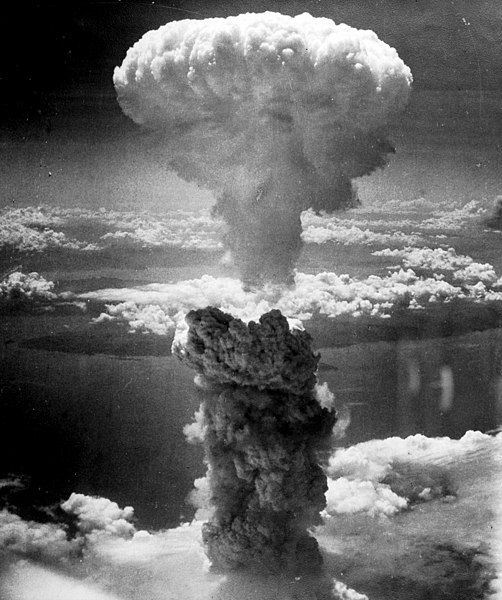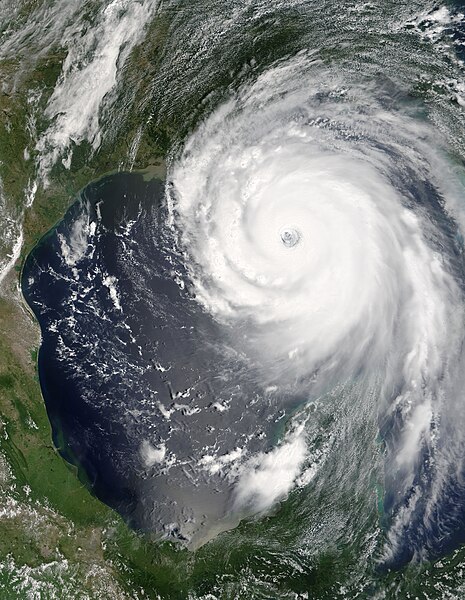I’m taking an introductory philosophy course this quarter, and we were recently discussing the problem of evil. Put simply, the problem states that it is contradictory to believe that there could exist a God which is at the same time omniscient, omnipotent, and omnibenevolent because if that were the case there would be no evil in the world, and anybody who was not born yesterday could tell you there clearly is. The argument goes, if he knows there is evil in this world, and is capable of creating a world with no evil but chose not to, then he is not omnibenevolent; if he does not know there is evil then he is not omniscient; and if he is not capable of creating a world with no evil then he is not omnipotent.
Atheist as I am, I find the argument a bit arrogant. How can we, in our finite intelligence, know whether or not this is actually the best possible world? Surely, some say, a world with no earthquakes or wars would be better. But would it? I personally don’t think we’re capable of knowing, or at least I don’t think this is a good enough proof for the non-existence of God. In the dialogue we read, written by John Perry, the theodicy proposed, meaning a possible explanation for how the problem of evil does not necessarily lead to a contradiction, relies on some of ugly assumptions that I don’t think are necessary; specifically the existence of heaven and hell, and the existence of “creatures” with free will which are invisible to us humans and like to pass the time by wreaking havoc on Earth. I consider this solution inelegant at best, and although I’m sure philosophers have found much prettier solutions, I thought I’d write about the one I came up with.
Disclaimer: As I have said, I am no expert in philosophy, but reason should be worth the same whether it comes from the savant or the fool.

My argument starts similarly to Perry’s. Most people would agree that free will is a good thing, and that a world without free will would be worse that a world with free will. If all of our actions were predetermined, and we were all nice to each other simply because we were programmed to do so, what’s the value in that? We probably wouldn’t be able to appreciate our existence anyway, since lacking free will would require us to lack reason, so even though we’d be “happy”, we would only be as happy as a rock. If somebody thinks we can lack free will without lacking reason, consider this example. When you ask for help in a problem in math class, and instead of being given a hint your professor simply guides you through the answer you do not have the free will to choose your own path. Moreover, this is the only difference between solving the problem yourself and having somebody else solve it for you. And even though you may understand the path your professor is taking, could you really argue you have reasoned the answer? I think not.
With that, we have accounted for human caused evils; wars, inequality, homicide, rape, etc. are all a product of the free will of those that cause them. Moreover, they are necessary products, since if I don’t have the ability to make the choice to kill somebody, I do not really have full free will. I would like to add that, although horrible atrocities are still committed every day, I do believe we have made some progress over the centuries. A century ago, there was no such thing as a Universal Declaration of Human Rights. And although, there are still murders and rape, many (developed) countries have succeeded in greatly decreasing the crime rate, both through increased social equality and improved law enforcement. These achievements would not have been possible if there were no evils to fight in the first place, and I think most people would agree that it is more beautiful with the knowledge that things weren’t always like that. That before welfare, a person who lost their job had to beg, or steal, or die of hunger. That before public health care, a poor, sick person had to either perish or hope for the good will of some charitable doctor. That this is still true in most of the world makes it all the more impressive, or at least this is my belief. Finally, hat we have not had a war with an obscene amount of casualties since World War II and the creation of the UN, or too large a famine since 1961. One day, I hope, war and hunger will be eradicated from Earth, and crimes will be a rare occurrence. If and when this happens, will it nor be more beautiful than if we had been born in a world like that to begin with?

Until this point, my argument differs very little from Perry’s. The more important difference comes in when dealing with natural disasters, such as earthquakes, tsunamis, tornadoes and hurricanes, none of which have the deeds of men as their cause. Now consider these questions: If there were no cold, would man have discovered fire? If there were no earthquakes, would we have understood our planet’s geology as well as we do? If there were no disease, would we have understood our bodies nearly as well as we do? If people didn’t attribute natural disasters to the stars, would we have learned astronomy? Although there is a small chance we would have out of simple human curiosity, I think it is impossible to deny that a big driving force behind a large portion of scientific developments was an attempt to understand, and hopefully control nature. And in part we have succeeded, floods can now be control through dams and canals, we can predict volcanoes and evacuate surrounding areas, and we’re getting better at predicting hurricanes and earthquakes. Sure, there is much left to understand, but we have all the time in the world. And even though you may not agree, it is at least conceivable that a world in which man have an understanding of the Earth and the Universe around it, of our body and our psychology is better than one in which we live completely ignorant of what surrounds us, and attribute natural phenomena to fairies and spirits and gods.
Just as I hope that some day humans will learn to live together in peace, free from war, tyranny and all necessity, I also think it is at least conceivable that one day, far in the future, man will be able to control all of nature as we have learned to control the flow of rivers. We will be able to stop earthquakes, tsunamis and wildfires, and even control the motion of celestial bodies. Wouldn’t this be beautiful? Some will say, what if we had been born that way? Wouldn’t that be better? And what about all the people that suffered before we reached such a point? Well, the only way I can conceive of a world in which humanity began with complete knowledge of the Universe and knowing how to deal with each other is one that was made like that from scratch, by a god, and in which a memory of these centuries of progress was simply printed into our brains. But that would be deceiving humans, and as Descartes said, an omnibenevolent God would not want to deceive us. The last question is a bit harder. I recognise that most of humanity has been century after century of suffering, and that this is clearly a bad thing. But if we learn how to control the Universe and ourselves, and even life and death, we could live forever, and maintain our reign of bliss forever. Is an eternity of happiness not worth a few millennia of suffering? It’s true, most of the people that suffered will likely not live to see this new era. But it is conceivable that even these people could be “resurrected” with science, like mammoths might be some time in the future. In that way, their suffering would be rewarded on Earth, with no need for heaven or hell, but just a bit of sci-fi.
The gist of the argument is this: God made a Universe in which suffering exists, but can conceivably be conquered through human reason and inventiveness. By doing this, he created a world in which we retain our free will and our capacity to learn about our surroundings, but we are still able to eventually achieve happiness. This world is, at least conceivably, the best of all possible worlds, and therefore it is not contradictory for someone to believe in an omnipotent, omniscient, omnibenevolent god while also noticing that suffering exists.